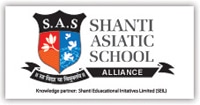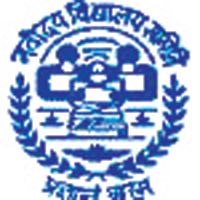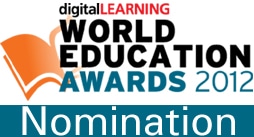
![]() Implementing Agency
Implementing Agency
ASN Sr Sec School
Website
www.asnschool.org
With the intention of sensitising the people of Delhi on the atrocious state of River Yamuna, the school organised a six day event. Seeing the plight of Yamuna River, which has been declared as a ‘dead river’ by WHO, ASN Sr Sec School (ASN) resolved to come up with many more awareness programmes. Such projects are necessary to senstise students and society to know about the importance of clean reasons behind the degradation of the river environment.
Objective
To increase the awareness among students about the environmental issues.
Achievements
• It worked out as a practical way of bringing the students close to the nature
• The whole school was involved in this project, thus the students learned to work as a team.
Target Group: The Youth of Today-School children
Challenges: There were several financial constraints in organising this on a mega scale. We overcame this problem by involving NGOs and Corporate houses who provided financial assistance. Getting pure water from Yamunotri in the Himalayas was a big challenge. After that we had to book IG Stadium for12000 odd spectators. So there were several logistical issues involved. Inviting the various judges for 70 different competitions was also a difficult exercise.
Ladders for Learning
 Implementing Agency
Implementing Agency
Shanti Asiatic School, Ahmedabad
Website
www.shantiasiatic.org
The I Cube Learning Ladder is an unique teaching-learning methodology that has been adopted in Shanti Asiatic School, Ahmedabad, for creating a joyful school environment that will generate happy, righteous and quality individuals, equipped to make right choices in life and grow up to be responsible citizens of the world. The I Cube Learning Ladder is woven in the strong belief in the theory of ‘Think Global but Act Local.’ It is dedicated to bringing about a global vision in the students.
Objective
• To make a child inquisitive about a subject
• To ensure that the curiosity developed is sustained
• To build a healthy inquiry based learning approach
Achievements
• Message of awareness was broadcasted across the region
Target Group: Students of Class I to X
Challenges: The first key challenge we face was in development of the methodology. We had to train the trainer so that he could impart further training to the students.
The Cafe
 Implementing Agency
Implementing Agency
Mahatma Gandhi International School
Website
www.mgis.in
The Cafe Project is a pedagogical initative undertaken by Mahatma Gandhi International School, Ahmedabad. The focus of this project is running the community kitchen in schools. It offers several opportunities for learning traditional subjects like cooking. Under this Cafe project, one is able to address several subject competencies through a meaningful and fun filled approach.
Objective
• To bring fundamental learning for survival (food) in the mainstream education of K-12 schooling
• To integrate innovative and experiential pedagogy to teach subject
Achievements
• Students voluntarily opted for a healthy diet due to heightened awareness
• Students understood important principles of hygiene and safety
Target Group: K-10 Students
Challenges: The students and the teachers have to be careful with the tools being used in the café. They have to have full knowledge of the working of the tools and the systems. Fire related hazards are also an issue. Another key challenge we faced was related to infrastructure, which had to be developed in such a way that the entire class could be accommodated in the kitchen premises. Time management is also a cause for concern. The project had to be designed in such a way that the younger children could be given extra training in safely cutting and chopping vegetables.
Reinventing Partnerships
 Implementing Agency
Implementing Agency
IBM India Pvt Ltd
Website
www.ibm.com
The IBM Reinventing Education (RE) programme is driven with the motivation of enhancing the quality of schooling. The project works in partnership with the local governments in various countries. Launched in 1994, this programme is now available in 25 cities throughout the United States, as well as in Australia, Italy, Ireland, Japan, Singapore, China, India, etc. It is a holistic model for teachers’ professional development and child centric learning aligned to national goals.
Objective
• To improve the quality of teaching and learning in the secondary school sector
Achievements
• Teaching moved from teacher-centred to child-centred active learning
• Drop-outs rejoined in school after seeing their friends ‘enjoying’ the learning experience
Target Group: Secondary school teachers, students and school heads in selected government schools
Challenges: The major challenge that the company faced in the initial stages was due to the lack of ICT integration in teaching learning process. Also in government schools there is hardly any opportunity for teachers to take up continuous skill development. We overcame these challenges by taking various steps to reinvent the education programme.
Imparting Shiksha
![]() Implementing Agency
Implementing Agency
Microsoft Corporation (India) Pvt Ltd
Website
www.microsoft.com
Project Shiksha, a part of Microsoft’s PiL programme, aims to incorporate innovative methods to provide new avenues of social and economic empowerment for the underserved communities. With the help of ICT based education, teachers are able to integrate IT tools in their classroom teaching and thereby bring efficiency to the process of teaching. Till date, this project has trained over 6,94,426 government school teachers who in turn have impacted over 32 million students by making ICT a part of their teaching.
Objective
• Bringing innovation in the teachinglearning process in a classroom
• Empowering the teachers with ICT skills
• Digital inclusion
Achievements
• The reach of the Project Shiksha is across 12 states in India
• Microsoft has trained over 6, 77, 000 government school teachers till date, who in turn have impacted over 32 million students
Target Group: Government school teachers
Challenges: A major challenge came from the fact that teachers were not that eager to pick up new skills. Some of them argued that they were due for retirement in a few months or a year or two and did not foresee the necessity of picking up new skills so late in their professional lives. Lack of infrastructure for the running of the programme was also an issue. Even when a computer lab came into being, the school
Active Teaching
 Implementing Agency
Implementing Agency
RUMI Education Pvt Ltd
Website
www.rumieducation.com
Rumi Pre-Primary (PP) Curriculum with Active Teaching is a complete end-to-end pedagogical system that ensures optimal learning outcome. This system meets the needs of the school’s pre-primary section. The system works through the involvement of teachers and students. It operates across the classrooms, schools and geographies in a standardised, scalable, monitor-able model. The exercise gets conducted within the academic framework of the school.
Objective
• To support the school with a single system that includes books, teacher manuals, methodology, teacher training, monitoring delivery, and assessments
Achievements
• Successfully adopted across multiple states
• Trained over 800 teachers
Target Group: Schools at every level.
Challenges: Parents compare their child with others in their friend/family circle and are concerned if their child has not learned as many alphabets or numbers. The product therefore had to meet the expectations of parents who are very discerning, when it comes to the educational needs of their own children. At parent teacher meetings, parents were sensitised of the fact that basic skills like gross motor, fine motor, kinaesthetic, reasoning etc. are important for all round development of the child. We also faced challenges due to different educational background of the parents.
MoU Between Students and School
![]() Implementing Agency
Implementing Agency
Salwan Public School
Website
www.salwangurgaon.com
The entire idea was conceptualised with a simple proposal. The students of the school wanted a month long celebration on the occasion of children’s day. The Principal agreed on a simple condition that there should be improvement in academics and behavioural aspects of the students. The idea behind the project was to empower all stakeholders and enhance a range of leadership skills. A think tank team was formed to plan the event.
Objective
• To enhance knowledge sharing
• To instil the sense of camaraderie and collective responsibility
Achievements
• Self Discipline generated by peer monitoring especially by the Shadow Council
• The list of defaulters in the discipline register drastically reduced.
• Workshops on communication skills helped in developing inter-personal skills
Target Group: Management, Parents, Students, Faculty, Support Staff and Community at large
Challenges: It was a mammoth task to successfully manage the initiative. Initially when the collaborative framework was read in the assembly, few students refused to sign as one of the clauses was to improve the academic performance by 5 percent. The members of the student council, shadow council and the faculty with the counsellor counselled the students. The House Captain also helped the new students improve their performance.
Towards Spiritual Intelligence
 Implementing Agency
Implementing Agency
DLF Public School
Website
www.dlfps.com
Objective
Inspiring children to adopt the three important precepts of life – Morality, Mastery over the mind, and Wisdom
Achievements
• Students have been winning the Yoga World Cup for India for the five consecutive Years
• Many case stories of children who have benefitted immensely from this programme
The School follows the Vipassana Meditation regime- one of India’s most ancient non-sectarian and scientific techniques of meditation. It is a significant part of the school curriculum. The students practice ‘AANPANA Sati’, the meditation of in-and-out breathing following the Vipassana meditation regime twice every day, in the morning and in the afternoon. Each classroom is equipped with a Speaker. Thus, the entire School follows ‘Guided Meditation’. ‘Yoga and Meditation’ an important part of the School curriculum.
Target Group: Students of Class III to Class XII
Challenges: One of the major challenges had to do with management of the logistics. Each classroom had to be equipped with speakers to aid guided meditation. We had to foster association with Vipassana Sadhana Sansthan to carry out a long term effective programme. Initially it was a challenge to get the teachers to meditate with the students. The teachers were quite resistant to even attending the Vippassana Meditation Camps. They had to be cajoled into attending the camps. Also it is a difficult task to make all the students attend the Yoga sessions.
Developing Research Skill
![]() Implementing Agency
Implementing Agency
Mount Abu Public School
Website
www.mountabuschool.com
The success of teaching is determined principally by evidence of improvement of some kind in the students being taught. This project is based on the assumption that educational evaluation is a professional responsibility of the academic staff. It arises from a commitment to understanding the effects of teaching on the students. The most important point is that not all teaching innovation requires special funding. Some of the most useful innovations are simple, cost-neutral changes in style, structure and parameters.
Objective
• To develop thirst for gaining new knowledge
• To develop research skill among the children and the teachers
Achievements
• Children became extrovert and developed efficiency
• Developed critical thinking among the students
• Developed creativity and proficiency
• Improved ranks in English, Science and Maths Olympiads Cloud
Target Group: School Children , teachers and parents across the globe
Challenges: The crunch of resources was a major problem. Some students lacked enthusiasm. So there was lack of complete participation from students. At times, we faced problems related to punctuality and regularity. The concentration level of students also left much to be desired.
Social Media in Education
 Implementing Agency
Implementing Agency
Jawahar Navodaya Vidyalaya Vijayanagram
Website
N/A
Global economic and social trends over the past few decades have had profound implications on educational reform and the use of technology in schools. The pervasiveness of Information and Communication Technologies (ICT) have changed the way people live and made it necessary for educational systems across India to reinvent teaching and learning to prepare students with 21st century skills. Jawahar Navodaya Vidyalaya Vijayanagram (JNVs) embarked upon the ICT journey to facilitate the integration of effective, existing, and emerging technologies in order to enhance learning opportunities for all students.
Objective
Provide increased opportunities for individuals to master basic and advanced technical, academic, and job-related skills
Achievements
• Virtual Room – Learncentral allowed students to attend a class from even outside the school like a real classroom
• m-Learning tool for especially visually and physically challenged
Target Group: School Leaders, Teachers and Students
Challenges: Making teachers and students familiar with the tools is by itself a challenge. Lot of training is needed to be provided during the initial days. The infrastructure had to be prepared. During Online Classroom Session unless everyone has fast Internet, things slow down if everyone turns on their webcam at once.





















